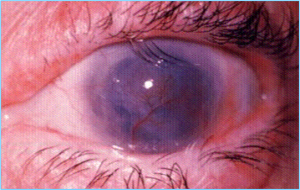 Sightsavers, a UK-based NGO that addresses preventable blindness in the developing world and contributors to End the Neglect, is this year’s Financial Times (FT) seasonal appeal recipient. Sgithsavers will receive donations from British readers who contribute to the FT appeal, which will run from November 21 – mid-January. The UK government has also agreed to match individual donations made to the appeal. Click here for more information on the appeal. Below an excerpt on the current state of river blindness published in FT:
Sightsavers, a UK-based NGO that addresses preventable blindness in the developing world and contributors to End the Neglect, is this year’s Financial Times (FT) seasonal appeal recipient. Sgithsavers will receive donations from British readers who contribute to the FT appeal, which will run from November 21 – mid-January. The UK government has also agreed to match individual donations made to the appeal. Click here for more information on the appeal. Below an excerpt on the current state of river blindness published in FT:
“The river in Nigeria’s poor, remote northern state of Zamfara has always played a central part in the 70-year-old’s life. He and his friends swam in it as boys “until our eyes were red”. It is a vital source of water for homes, livestock and crops in Mr Adamu’s village of Birninwaje, a fishing and farming community of 3,000 people, where he was for many years the traditional leader. It is also the source of his blindness. River blindness is endemic in these parts. The parasitical disease is named after the black flies that live near flowing waterways such as the Zamfara – and across sub-Saharan Africa, Latin America and parts of the Arabian peninsula – and transmit one of the world’s leading causes of blindness.” Click here to read the full article. Also, check Jeremiah Norris’ (Director, Center for Science in Public Policy, Hudson Institute) Letter to the Editor in response to this piece.


